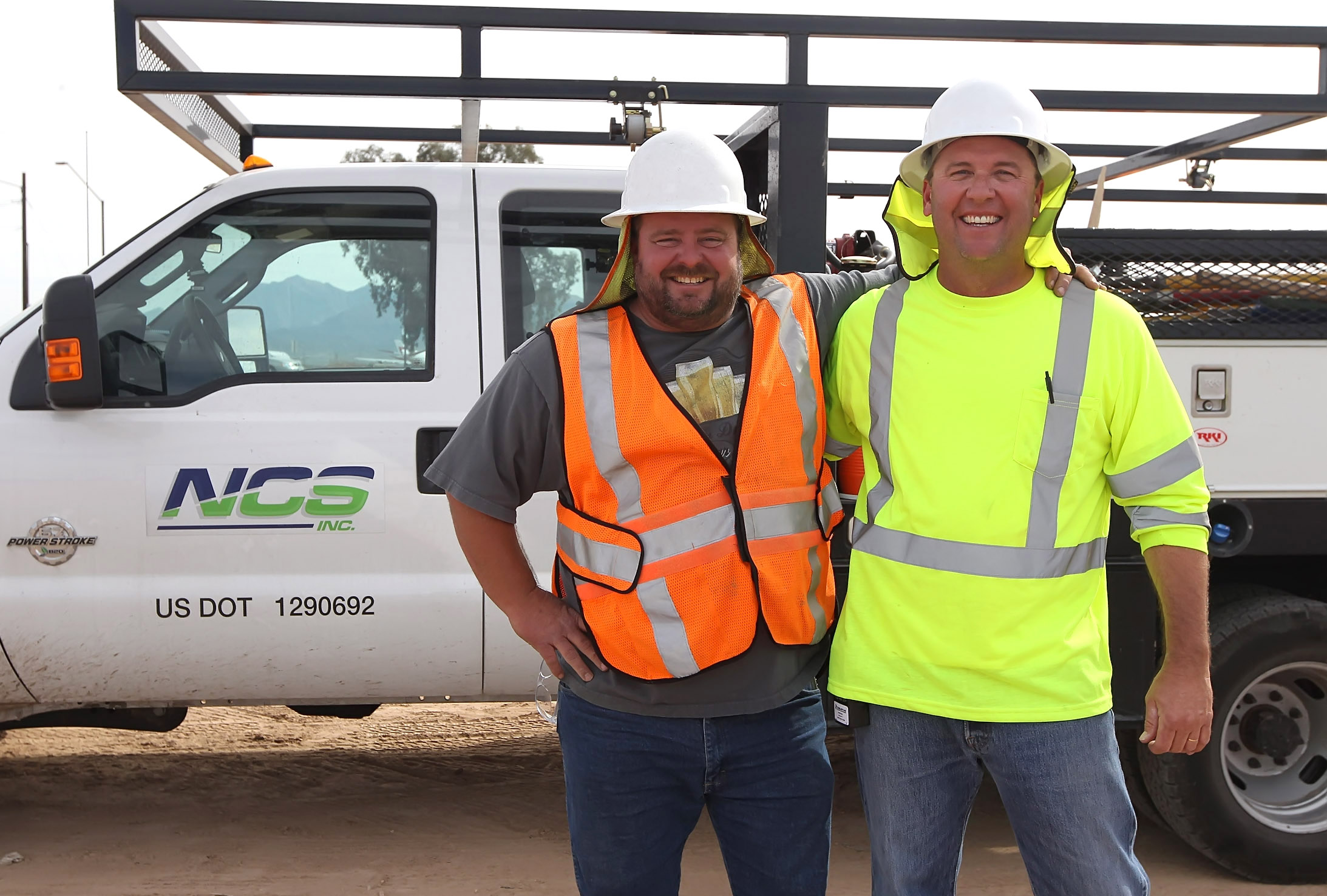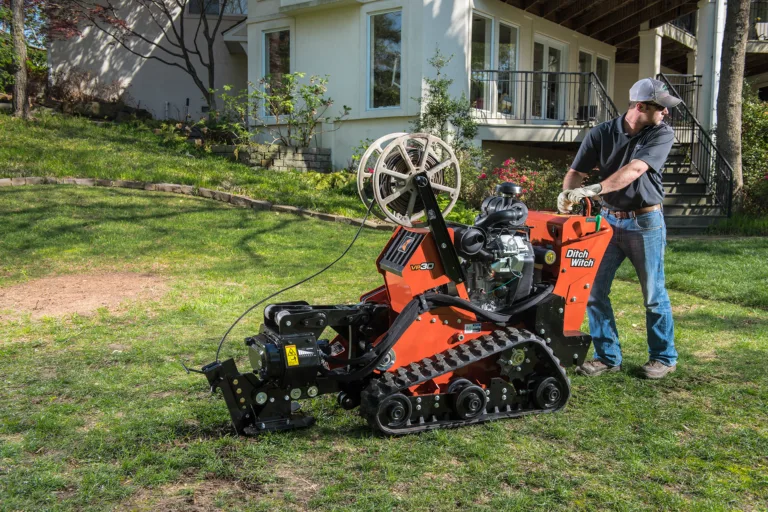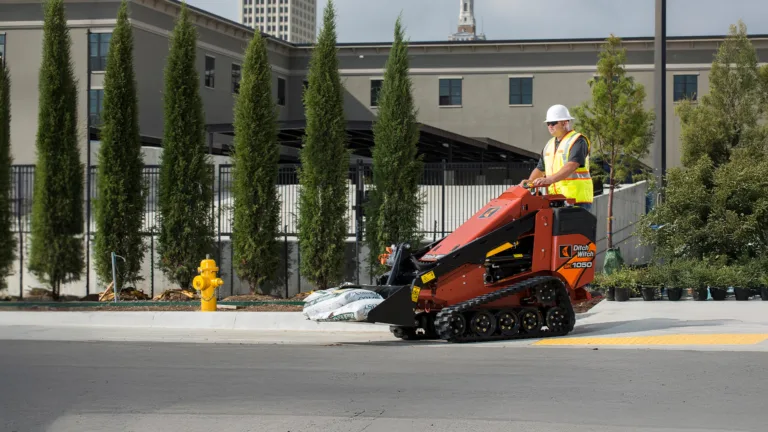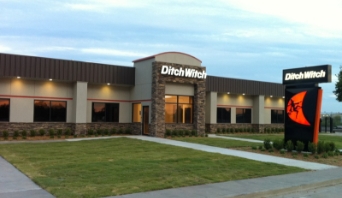Networx Cabling Systems, Inc. Company Profile
Networx Cabling Systems, Inc., d/b/a NCS, Inc., is an Arizona utility contractor specializing in outside plant (OSP) telecommunications construction.
Based in Flagstaff in Northern Arizona, NCS currently operates in Arizona and California with licenses pending in New Mexico and Nevada, said Bill Tippett, Networx president.
“We are primarily an OSP telecom contractor providing both underground and aerial construction services,” Tippett continued. “We have extensive horizontal directional drilling (HDD) capabilities that we sub to the entire spectrum of utility construction – dry and wet – to general contractors and facility owners.
“Our expertise is working in existing urban environments for repairing or replacing existing infrastructure. We prefer working in rural communities and remote locations and like challenging projects.”
Tippett said NCS is turnkey capable, but generally its contracts are for specific segments of work in a project.
NCS has prime contracts with several local cable companies and provide excavation, directional drilling, and overhead placement services to a variety of contractor types – general, electricians, plumbers, communications installers – as well as municipalities, state agencies, local gas companies, and others.
“Implementation of HDD in underground projects has grown significantly in the last five years,” said Tippett. “Some projects are scoped entirely HDD with trenching as the substitute methodology if the contractor chooses. Often, though, open trenching is not an acceptable method even in places where it would have been expected in the past. Aerial construction has diminished so much in the last twenty years that there aren’t many contractors with aerial capabilities, especially in telecom.”
Included in the NCS equipment fleet are four horizontal directional drilling units, all with pullback ratings of less than 50,000 pounds.
Recently added was a Ditch Witch JT30 All Terrain (AT) model with 30,000 pounds pullback. AT equipment uses a patented dual-pipe drilling system that allows relatively compact equipment to effectively drill and be steered in hard rock and other difficult conditions.
Tippett said the AT model has added to NCS’s capabilities.
“We are known for our capability for drilling in adverse and rocky conditions,” he explained. “After a couple of demos, it was clear that we wouldn’t be able to live up to our reputation without an AT system in our fleet. We have had several jobs where the AT system has proven to be the only solution.
“The one significant factor that we found most important is that the drilling head was more responsive in fractured and layered rock formations that a typical pneumatic set-up didn’t seem to handle well. The AT system provides much better steerability in those situations.”
NCS also has begun recycling and reusing drilling fluids, saving costs of fluids and the transportation of water to mix them and reducing the number of trips to dispose of used fluid.
Recycling fluids is standard procedure with large drilling rigs, but until recently there were no recycling systems for small and medium size equipment.
The Ditch Witch MR90 recycling system fills that void.
“The MR90 provides a mud management solution we needed due to the remote locations we work,” said Tippett. “Getting water or dumping drilling fluids would sometimes take well over an hour. Figuring the cost savings didn’t even require us to put pencil to paper – it was obvious on the first job where we used it.”
Tippett said NCS was sold on the value of the JT30 AT and MR90 when the company’s Ditch Witch dealership, Ditch Witch of Arizona brought the equipment to a troublesome job.
“It was a true test of what the equipment could do,” he said. “The job was in Page, Ariz. drilling through fractured sandstone to move utilities for a road-widening project, and we could not complete the job with the 40,000-pound drill rig-pneumatic hammer set up we were using.”
The project required boring a depth of 20 feet in order to avoid new water and sewer lines.
“We were having difficulty steering out of the sandstone layers and didn’t have enough room to make a deep receiving pit in the crowded right-of-way,” Tippett continued. “The JT30 AT easily finished the 300 foot bore in a day, after we’d been stuck for a week trying to complete one 2-inch bore.”
Due to the high volume of fluids expected to used on the installation, Tippet said the Ditch Witch dealership on its own initiative also brought to the job one of the first MR90s fluid recycling systems it had added to its inventory.
“We hadn’t even heard about it,” Tippett said. “We liked it so much and because of its performance that we insisted on paying for its rental. Ditch Witch of Arizona dealership owner David Klingaman and his crew take an interest in every one of their customers and try to anticipate our needs. They have clients much bigger than us, but they treat all of us the same. That speaks volumes for their integrity – they don’t sell equipment, they provide solutions. A lot of companies say that, but David’s crew really follows through.”
Soon after that job, the JT30 AT and MR90 proved their worth on a fiber project at Oak Creek Canyon in Sedona, Ariz.
The JT30 AT installed approximately 2,500 feet of 1.25-inch future path, multiple mini duct fiber to a cell tower. Most of the bore path was along a road with 12 percent incline and numerous switchbacks. Because of this, the installation was broken up into eight bores of approximately 250 feet each.
“Access was limited over Oak Creek to a one lane unrated bridge,” Tippett said. “The fluid reclaimer was crucial for this job for limiting trips for water and dumping used drilling fluid. Water and sewer ownership wasn’t clear and, therefore, not located and marked. We used our Subsite® Electronics locators to help identify where these utilities were.
“The road surface was four-inch concrete in poor condition. Its ownership and maintenance responsibility were unclear, and not damaging it was a great concern for some residents. Also, residents of the neighborhood are very environmentally conscious, and some were opposed to additional cell towers, expressed through heated conversations, small protests, and graffiti, that led to work stoppages. We had to deal with the public relations aspects on a daily basis. Limiting the number of trips in and out of area was crucial – it raised the ire of residents every time we passed through.”
The JT30 AT is powered by a 160-horsepower Tier 4 diesel engine. It develops 30,000 pounds of pullback, and maximum spindle torque of 4,000 foot pounds.
The All Terrain system uses an inner rod to drive the bit, and the outer pipe to steer the downhole tool for drilling pilot holes and to provide rotary torque for the hole opener during backreaming.
The MR90 fluid recycling system is specifically designed for use with small to medium-size drill rigs which makeup the majority of HDD units on HDD projects today.
Tippett said the roots of NCS date to 1988 as a partnership with his father.
“My father owned two computer stores,” he said, “and I had developed telecommunications skills working for cable television companies installing LANs [local area networks].
“Within a year I dropped the LAN work, bought a trencher, and started working as a subcontractor on a project to extend CATV plant in north Scottsdale. I found I wasn’t fond of working in the restricted environments of buildings. I also believed cable television plant extension projects which were booming in rural areas at the time would be more lucrative and easier to manage. I subsequently bought out my father in 1995 and incorporated the company.”
Tippett said the cornerstone of NCS’s success is “enlightened self-interest”.
“By being good stewards in the utility construction industry – meaning conducting our business in a manner that’s best for all parties, we create unlimited opportunity for everyone,” he continued. “We put the customer’s immediate needs ahead of our own, solving problems and not causing them. Striving for profit only never has been the foundation of a quality company.”
Looking ahead, Tippett said Networx will continue to seek projects where the company’s expertise will help solve challenging and difficult situations.
“We are not interested in growing for growth’s sake,” he concluded, “and are selective about the projects we take and the customers we work for. We intend to cast a broader net across the western U.S, but will only grow as good opportunity dictates.”
In addition to horizontal directional drilling equipment, the Ditch Witch product line includes HDD tracking systems, drill pipe and downhole tools, performance parts, trenchers, vibratory plows, vacuum excavators, compact utility equipment, and support products. Ditch Witch® is a member of the Charles Machine Works family of companies which also includes Subsite® Electronics, American Augers®, Radius® HDD, Hammerhead®, Trencor®, MTI® Equipment, and DW/TXS®.






